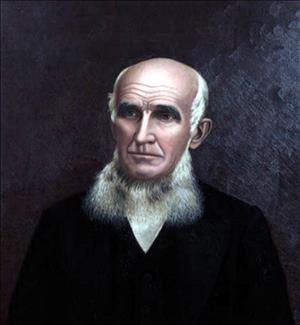In 1860, a government land survey names Mercer’s Island for the first time. Later shortened to Mercer Island, the island is named for Thomas Mercer (1813-1898), an early pioneer who suggested the names of Lake Washington and Lake Union.
Mercer’s Picnic
Thomas Mercer came from Princeton, Illinois, arriving in Seattle in 1852, where he filed a donation claim east of Lake Union, then called "tenas Chuck" (Chinook for "little waters"). Mercer Street became the boundary between his claim and that of David Denny.
On July 4, 1854, a picnic was held on his property, and Mercer proposed that tenas Chuck be named Lake Union, and the larger lake to the east (hyas Chuck, or “large water”) be named Lake Washington. Someone at the picnic mentioned that the large island in the south end of Lake Washington be named Mercer’s Island, as Mercer was known to visit it quite often.
In 1860, a federal land survey was made, wherein the island was officially named Mercer’s Island. Later this was shortened to Mercer Island.
He Walks on Water?
Mercer was friendly with local Indians, and often hired one of them to row him over to the island in the morning, and then row him back in the evening. Mercer would spend his day exploring and enjoying the sylvan setting, oftentimes picking berries.
On one occasion, Mercer was not on shore when his canoe ride returned to pick him up. An Indian legend had it that the island sank into the lake each night, only to rise again in the morning. The canoe owner, not wishing to be present for that, paddled back alone.
In the morning, the Indian returned and there was Thomas Mercer standing on shore. The paddler saw that Mercer’s clothes were dry, and assumed that Mercer had miraculously survived the sinking of the island. From this point forward, there were some Native Americans who believed that Mercer had supernatural powers.

